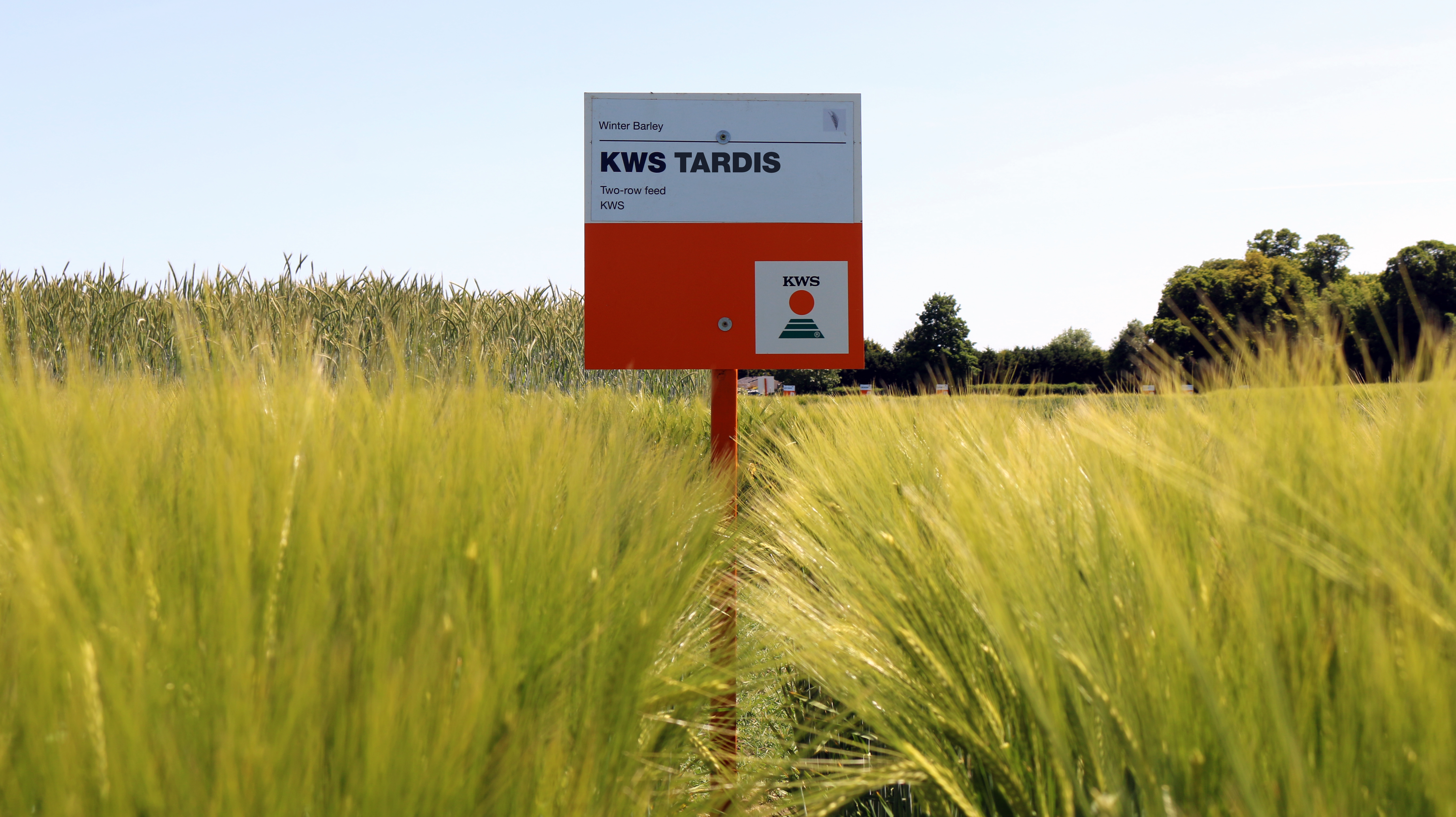New ‘high resilience’ wheat and barley varieties in demand
- Recent production challenges put focus on vigour and disease resistance
- Ideal combination of yield and functional traits
- Resilience becoming increasingly important
With another difficult autumn drilling period in 2020 and an exceptionally wet start to the new year, resilience, vigour and disease resistance are becoming ‘must have’ traits in both wheat and barley with two stand-out varieties on the new 2021/22 RL now attracting considerable grower interest.
KWS Cranium sets important new standards in the Group 4 hard wheat sector including the best yield and yellow rust combination of all listed wheat varieties whilst KWS Tardis is the highest yielding 2-row winter barley on the new list, says KWS’ Kirsty Richards
“With the best combination of yield, Yellow Rust resistance and OWBM resistance on the 2021/22 RL, KWS Cranium ticks all the boxes for a high performance modern wheat.
“It’s got the highest yield of all the RL late drilling varieties and the best combination of yield and straw stiffness on the list plus it has Orange Wheat Blossom Midge (OWBM) resistance too.
“KWS Tardis also rewrites the rules with a performance rivalling many 6-row hybrid varieties achieving a yield of 106% of controls on the new 2021/22 RL – just 1% point behind the highest yielding 6-row hybrid. It’s also got an excellent agronomic package.”
Frontier seed manager Chris Piggott, says with the challenges around disease in the future and large domestic markets for feed wheat, KWS Cranium will appeal to growers looking to reduce production risks without sacrificing yield potential.
“KWS Cranium is yielding within 1% of the highest yielding variety on the Recommended List and is part of a select few varieties that combine a Septoria score of 6 and above and a yellow rust score of 8 and above.
“These two particular diseases are the most challenging in terms of yield penalty so to have high genetic resistance is an advantage. Late sown performance is particularly strong.
“Being a hard wheat, KWS Cranium offers a lower sprouting risk for a variety that is slightly later to maturity compared to the alternative soft wheats. To top everything off it also has good fusarium resistance and OWBM resistance.”
“High yielding feed wheat has been a significant portion of the market for some time, with a much reduced potential for not achieving spec. and many destinations local to a lot of growers, there is a great deal of marketing flexibility.
“I think KWS Cranium is going to appeal to a broad range of growers from both in-field performance and marketing perspectives.”
The good thing about KWS Tardis is that its straw length is not at the expense of standing power as it has a strong lodging resistance score too.
New barley has broad appeal
On the barley front, Openfield’s arable technical manager Duncan Durno says KWS Tardis will have broad appeal for growers across the country.
“Obviously its headline figure is the yield but there’s a lot more to KWS Tardis than just that. It’s got a really strong set of features that will make it appeal to all barley growers wherever they are.
“In the East, that yield figure and high specific weight are really going to make it attractive to any feed barley grower, but the variety’s Rhynchosporium score of 7 helps make it a safe bet wherever you are.
“In the West of the country, for example, a strong Rhynchosporium score is important in potentially wetter conditions, but KWS Tardis’, long, tall straw is going to be an added bonus to livestock producers and home-feeders in the region.
“The good thing about KWS Tardis is that its straw length is not at the expense of standing power as it has a strong lodging resistance score too. Its Net Blotch resistance is pretty solid as well.”
The other key feature of the variety is the potential flexibility it will add to rotations, he says.
“With the good oilseed rape crops we generally have in the ground at the moment, this is a crop that could now have a better future in the UK than many were predicting.
“What is increasingly clear, however, is that oilseed rape success depends on having flexibility around sowing date so crops are drilled in the best conditions they can be.
“A strong, reliable and early harvesting winter barley in the rotation is one of the better ways of giving growers the time and space they need to choose the best drilling date possible rather being forced into a narrow number of options.
“Even without rape, such a variety will give you many more management options in your business and the yield, disease resistance and physical features of KWS Tardis makes it the perfect choice for this. I think it’s going to be a really popular variety.”
Your consultants




